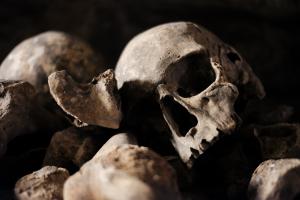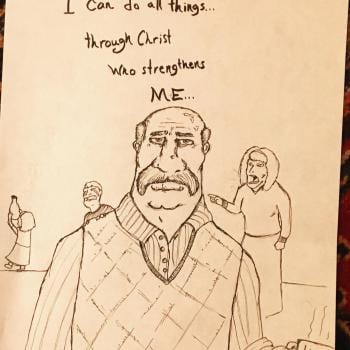I’m over at Stand Firm today.
Well, here I am after a nice quiet month. I kept thinking I would blog while it was going on, but then I figured—as the news kept getting worse and worse—that I just wouldn’t. If ever there was a time not to weigh in about anything, this seemed as good as any. Instead, as a special treat, in spiritual preparation for enduring the dreaded yearly remembrance of my birth, I listened to a book called The Great Mortality: An Intimate History of the Black Death, the Most Devastating Plague of All Time by John Kelly. It isn’t my usual preferred genre, and I was a little bit anxious about whether or not I could, as it were, stomach it, but it was so luridly riveting I made it through.
So basically, in case you live under a rock, there was once a horrible disease called, by some, The Black Death, or, as it swept across Europe in the Middle Ages, The Great Mortality. It came, you might have heard, by means of fleas on rats traveling all over the earth through the technologically transformative innovation of the day—boats. It infected people so swiftly that whole villages lay silent in a matter of weeks. Kelly, more than once, resorts to nuclear holocaust as an emotional touchstone.
How could this have happened? Well, writes Kelly, there were climate fluctuations that impacted (sorry, couldn’t resist) the rat population and made the disease more virulent. Then, it turned out that nobody liked to bathe much. That was a major factor. Everyone also was lazy and preferred to empty their chamber pots into the street. Warfare was modernizing and involving greater numbers of soldiers than before. And, of course, there was the usual amount of human hubris and arrogance that ramped up the possibility of mass death several notches higher than required. When you add in the fact that no one knew what caused it, and terrible famines sweeping across Europe before the plague even dawned, well, it wasn’t, to put it as mildly as possible, a Good Time.
One of my favorite bits was Kelly’s occasional mention of the theological worldview of those at the time, both Muslim and Christians, as people tried to make sense of what was happening. As the plague crept up, each and every community knew that God was judging the wicked. ‘I myself,’ each and every person thought, ‘will not succumb to the plague because I am good and it is just and right that my enemies should suffer and die in Ebola-esque horror.’ Eventually, though, everyone was exposed. It swept away the rich and the poor, the old and the young, the man and the woman, the believer and the infidel alike. Some astute observers at the time wondered if God was exercising his divine wrath even at home. Have we sinned, some wondered. Probably not. One thing was clear, however. God, or at least “God,” had something to do with it. Oh, and also the Jews. Persecuting them seemed as good a way of appeasing God, or rather “God,” as any. Thus was added another layer of foul corruption to the already sickening horror of daily pandemic life…read the rest here!













